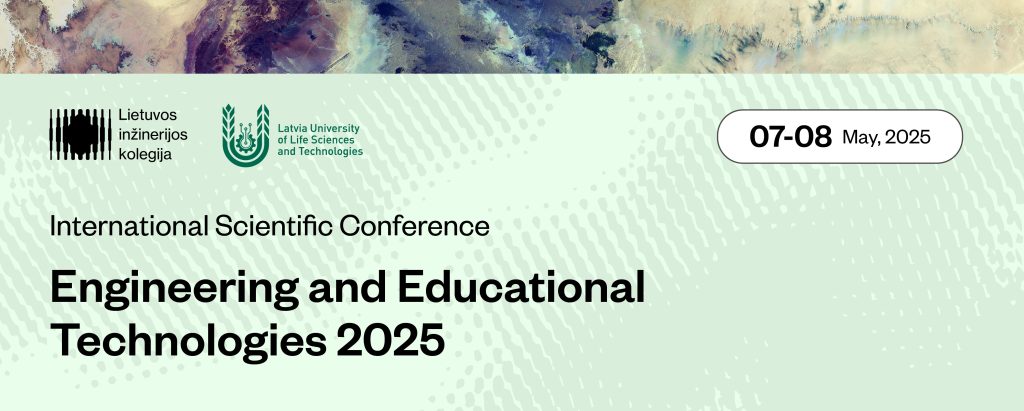
Międzynarodowa konferencja w Kownie o przyszłości inżynierii środowiska
Dr inż. Barbara Klik reprezentowała Katedrę Kształtowania Środowiska i Teledetekcji podczas International Scientific Conference Engineering and Educational Technologies 2025, która odbyła się w dniach 7-8 maja 2025 r. w Kownie, Litwa. Wydarzenie zostało zorganizowane przez Lietuvos Inžinerijos Kolegija Higher Education Institution.
W swoim wystąpieniu pt. „Innovative Technologies for Sustainable Soil Decontamination: Insights from Deep Eutectic Solvents-Based Heavy Metal Extraction”, Pani Doktor zaprezentowała wyniki innowacyjnych badań nad wykorzystaniem naturalnych roztworów głęboko eutektycznych w procesie remediacji gleb zanieczyszczonych metalami ciężkimi. Badania te oferują przyjazną środowisku alternatywę dla powszechnie stosowanych chelatorów syntetycznych i wpisują się w kierunki rozwoju zrównoważonych technologii oczyszczania środowiska. Realizacja badań była możliwa dzięki wsparciu finansowemu Narodowego Centrum Nauki (grant nr 2023/51/B/ST10/02245).
Udział w wydarzeniu był doskonałą okazją do międzynarodowej prezentacji działalności naukowo-badawczej oraz nawiązania kontaktów z przedstawicielami uczelni technicznych i środowisk akademickich z Europy.
International Conference in Kaunas on the Future of Environmental Engineering
Dr Eng. Barbara Klik represented our institution at the International Scientific Conference Engineering and Educational Technologies 2025, held on May 7–8, 2025, in Kaunas, Lithuania. The event was organized by the Lietuvos Inžinerijos Kolegija Higher Education Institution.
In her lecture titled “Innovative Technologies for Sustainable Soil Decontamination: Insights from Deep Eutectic Solvents-Based Heavy Metal Extraction”, Dr Klik showcased the results of innovative research on the application of natural deep eutectic solvents in the remediation of soils contaminated with heavy metals. This research offers an environmentally friendly alternative to commonly used synthetic chelators and aligns with the global trends in sustainable environmental cleanup technologies. The research was possible thanks to the financial support of the National Science Centre, Poland (grant no. 2023/51/B/ST10/02245).
Participation in the event provided an excellent opportunity to present scientific research activities on an international stage and to establish valuable connections with representatives of technical universities and academic communities from across Europe.